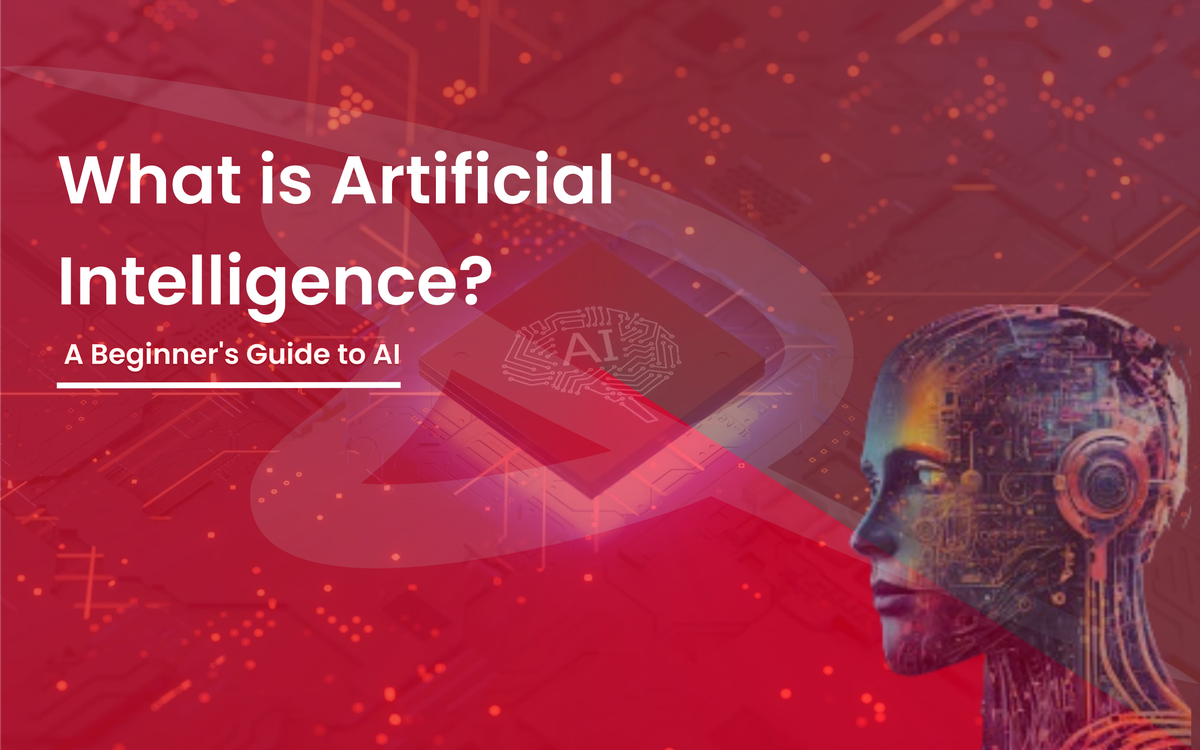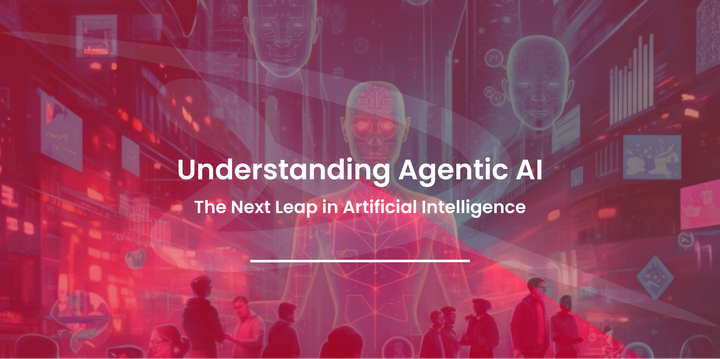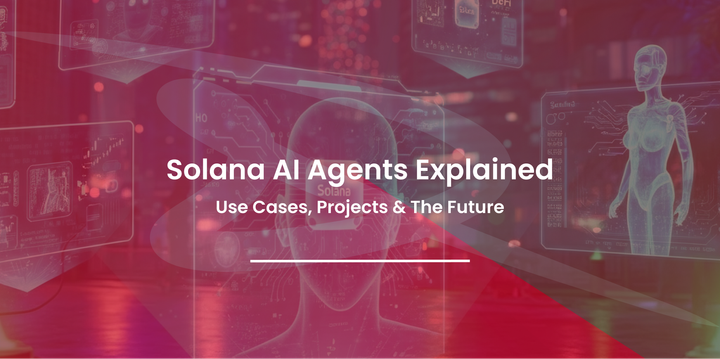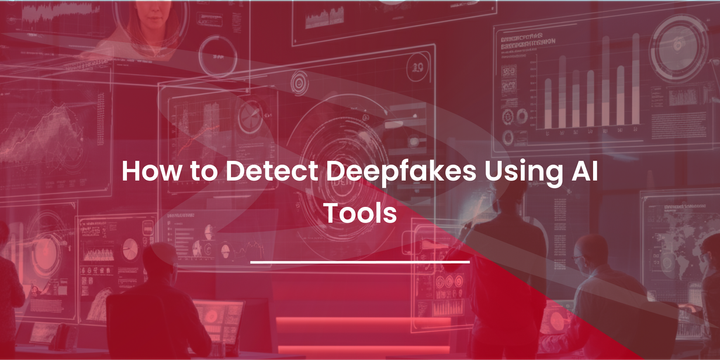What is Artificial Intelligence? A Beginner's Guide to AI
Learn what AI is, why it matters, and how it’s transforming industries. AI is no longer just a concept from science fiction—it's an integral part of our everyday lives. From machine learning to applications, discover this beginner's guide to Artificial Intelligence.

Artificial Intelligence (AI) is shaping the way we work, live, and interact with the world around us. From virtual assistants like Siri and Alexa to self-driving cars and predictive algorithms, AI is no longer just a concept from science fiction—it's an integral part of our everyday lives.
But what exactly is AI, and how does it work? This blog will guide you through the fundamentals of AI, its importance, its pros and cons, and provide answers to some of the most frequently asked questions. Whether you're a student, a tech enthusiast, or an entrepreneur, this beginner's guide to AI will walk you through everything you need to know.
Introduction to Artificial Intelligence
AI refers to the simulation of human intelligence in machines that are programmed to think, learn, reason, and solve problems like humans. Essentially, it's about developing systems that can mimic cognitive functions, including learning from data, recognizing patterns, and making decisions.
Key Components of AI:
- Machine Learning (ML): A subset of AI that focuses on teaching machines to learn and adapt without explicit programming.
- Natural Language Processing (NLP): The ability for AI to understand and generate human language (e.g., chatbots and virtual assistants).
- Computer Vision: Enabling machines to interpret and make decisions based on visual data from the world, such as images and videos.
- Robotics: Using AI to design robots that perform tasks requiring human-like precision and autonomy.
For beginners, AI might seem complex and intimidating, but we're here to simplify it. Let's start with the basics.
A Beginner's Guide to Artificial Intelligence
AI encompasses a wide variety of technologies and applications. Here’s a concise beginner's guide to understanding key AI concepts:
How AI Works
AI systems rely on data and algorithms. Think of algorithms like a recipe that tells a computer what steps to follow. Here’s the process:
- Data Collection - AI gathers data from various sources (e.g., web searches, sensors, or databases).
- Data Processing - The data is cleaned, organized, and prepared for use.
- Learning - Through machine learning techniques, the AI system identifies patterns and insights from the data.
- Decision Making - Based on what it has learned, the AI makes predictions and decisions.
Common Types of AI
- Narrow AI (Weak AI): AI systems designed to perform specific tasks (e.g., spam email filters or voice recognition software).
- General AI (Strong AI): Hypothetical AI that can perform any intellectual task a human can perform. This is still in the theoretical phase.
- Super intelligent AI: AI that surpasses human intelligence. While it’s a hot topic in AI ethics, it's yet to be developed.
AI in Everyday Life
Most people interact with AI daily, often without realizing it. Here are some common examples:
- Social media algorithms that recommend content
- Online shopping platforms suggesting products
- GPS systems providing the fastest routes
- Streaming services like Netflix curating your watchlist
Why AI? Understanding Its Importance
The significance of AI lies in its ability to enhance human efficiency, solve complex problems, and unlock a wealth of opportunities.
Benefits of AI
- Automation - AI streamlines repetitive and manual tasks, allowing humans to focus on creativity and strategic decisions.
- Efficiency - From better supply chain management to quicker customer service, AI speeds up processes.
- Insights - AI systems analyze massive amounts of data to uncover insights humans might miss.
- Personalization - Many industries, like e-commerce and entertainment, use AI to deliver customized user experiences.
- Innovation - AI is a major driver of innovation across industries, from healthcare to finance.
Why AI is Transformative
AI is not just about mimicking human intelligence; it's about amplification and innovation. It enables businesses to work smarter, students to learn more efficiently, and individuals to live more conveniently.
For instance, in healthcare, AI-powered diagnostics can detect diseases like cancer earlier than traditional methods. Meanwhile, businesses use AI for predictive analytics to gauge market trends and consumer behavior.
Pros and Cons of Artificial Intelligence
Like any revolutionary technology, AI comes with its set of advantages and drawbacks.
Pros:
- Accuracy: Thanks to algorithms trained on extensive datasets, AI often achieves a high level of accuracy (e.g., AI in detecting flaws in manufacturing lines).
- Scalability: Once properly implemented, AI systems can adapt to larger workloads without additional human intervention.
- 24/7 Operations: Unlike human labor, AI-run machines and systems work around the clock.
- Reduced Human Error: AI systems, when designed well, minimize mistakes.
Cons:
- Job Displacement: Automation introduced by AI could replace certain roles, particularly those involving routine tasks.
- High Development Costs: Building and maintaining AI systems can be expensive.
- Bias in Data: Poorly curated data can lead to biased or inaccurate AI decisions.
- Ethical Dilemmas: As AI becomes smarter, issues like privacy invasion and misuse of technology arise.
These pros and cons make it essential to strike a balance when implementing AI solutions, ensuring responsible innovation.
Famous AI-related FAQs
1. Is AI going to replace humans completely?
AI will likely automate tasks and complement human intelligence rather than completely replace people. It will lead to new job roles and opportunities while phasing out others.
2. Can AI learn and think like humans?
AI systems "learn" by identifying patterns in the data they process, but they don't have emotions, self-awareness, or consciousness like humans.
3. What industries use AI?
AI is used extensively in industries such as healthcare, finance, retail, entertainment, automotive, and manufacturing.
4. Is AI dangerous?
While AI poses ethical and safety concerns, responsible implementation with oversight can address potential risks.
5. How can a beginner get started with AI?
Beginners can explore online AI resources and courses tailored for novice learners. Focus on topics such as Python programming, data science concepts, and machine learning basics.
Leverage the Power of AI for the Future
Artificial Intelligence is no longer a distant dream—it’s an exciting opportunity available to everyone. Whether you're a student excited about the future of tech or an entrepreneur looking to integrate AI into your business processes, understanding AI is the first step toward leveraging its potential.
AI promises to redefine how we think about problem-solving while opening doors to innovation and economic growth. Its applications will only continue to grow, pushing boundaries and reshaping industries.
Are you ready to explore and apply AI in your life? The future begins now.




Comments ()